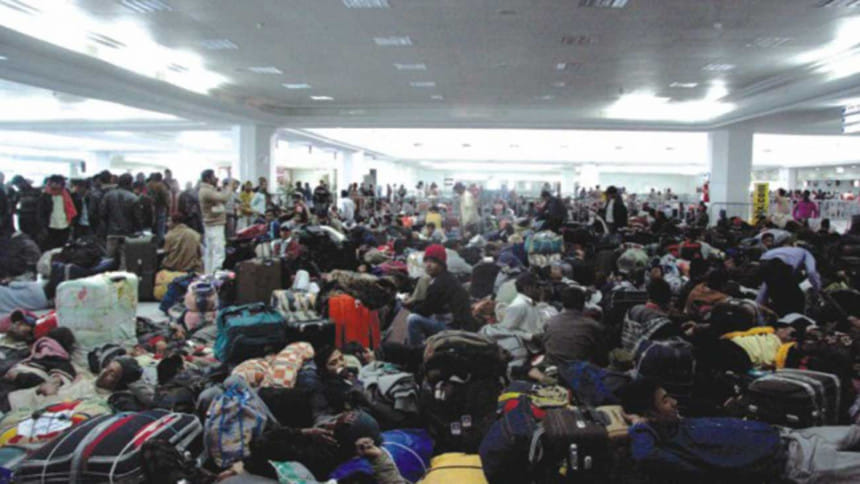Libya bans Bangladeshi workers

Libya's official government has banned Bangladeshi workers from entering the country because many were trying to travel on illegally by boat to Europe, a government spokesman said yesterday.
ASM Ashraful Islam, councillor (Labour Wing) at Bangladesh embassy in Tripoli, confirmed it while talking to The Daily Star today.
According to the Reuters, the North African country, gripped by violence and a breakdown of state authority four years after the ousting of Muammar Gaddafi, has turned into a major hub for human traffickers smuggling African migrants by boat to Italy.
"Bangladeshi workers will be banned from entry into Libya," said Hatem Uraibi, spokesman for Libya's internationally recognised government, which has been based in the east since losing control of the capital Tripoli last year.
"They come for work for Libyan firms but then embark on illegal migration (to Europe)," Uraibi told Reuters. "The ban is part of government efforts to fight illegal emigration."
He gave no more details on the ban which would only apply for land borders, ports and airports in eastern Libya where the internationally recognised government is in the control.
Western Libya, the main launch pad for smugglers sending boatloads of migrants towards Italian shores, is controlled by a rival government set up after an armed group seized Tripoli in August.
As many as 900 people may have died last month off Libya's coast when their packed boat capsized as they were trying to reach the Italian island of Lampedusa. Many thousands more have managed to make the crossing in an almost daily exodus of boats.
The UN refugee agency says 51,000 migrants have entered Europe by crossing the Mediterranean so far this year. The flow has prompted European Union plans for naval and air operations to target smuggler vessels.
Libya is mired in conflict with the two rival governments allied to former rebel groups which helped topple Gaddafi but now fight each other in a complicated struggle involving tribes, competing regions, Islamists and political parties.

 For all latest news, follow The Daily Star's Google News channel.
For all latest news, follow The Daily Star's Google News channel. 



Comments